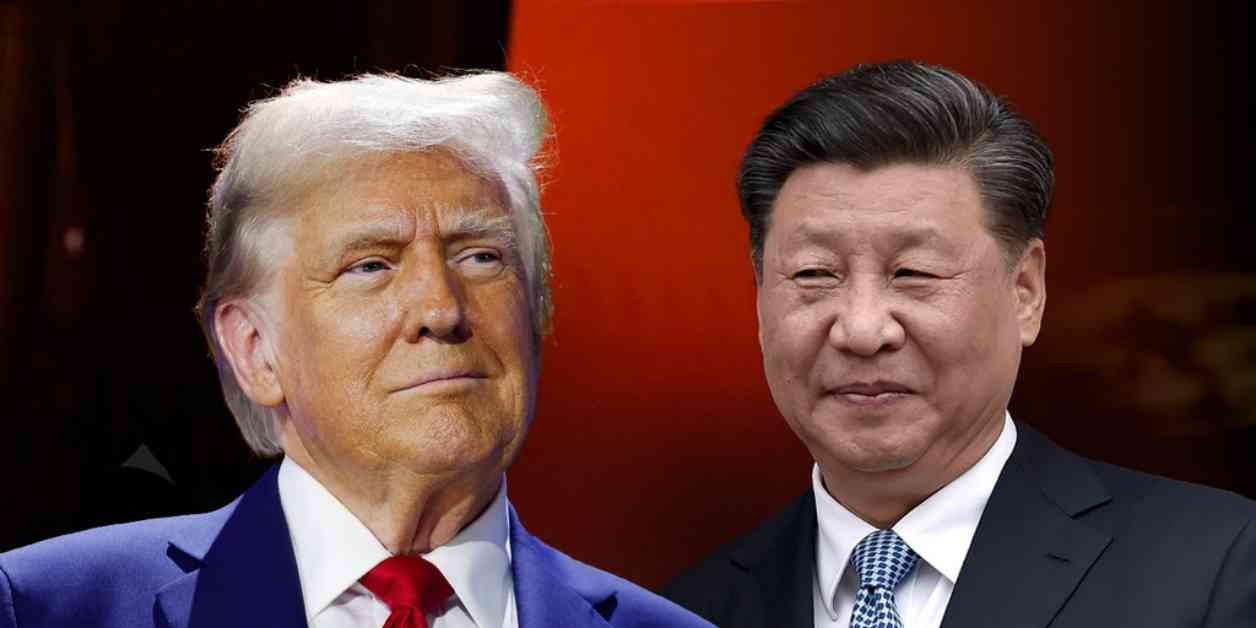President Xi Jinping’s Unusual Inauguration Invitation Leaves China Guessing
In a surprising move that caught China off guard, President-elect Trump extended an invitation to President Xi Jinping to attend his upcoming inauguration, marking the first time a Chinese head of state has been invited to a U.S. presidential inauguration in history. This unexpected gesture comes amid escalating tensions between the two nations and speculation of an impending trade war between the world’s two largest economies.
Experts and analysts are left wondering about the implications of this unprecedented invitation and what it signifies for the future of U.S.-China relations. While sources close to the matter have indicated that President Xi is unlikely to accept the invitation, the mere act of extending it has raised eyebrows and sparked conversations around the globe.
The Backdrop: Cybersecurity Concerns and Diplomatic Maneuvers
The invitation comes at a time when the U.S. intelligence community has uncovered a massive hack of eight U.S. telecom companies, with Chinese hackers gaining access to sensitive data, including information about Vice President-elect JD Vance. This breach, known as Salt Typhoon, is one of the most extensive cyberattacks in history and has raised serious concerns about cybersecurity and data privacy.
On the diplomatic front, a Chinese national was recently arrested for flying a drone over the Vandenberg Space Force base in Northern California, further adding to the tensions between the two nations. Experts like Gordon Chang have criticized Trump’s invitation, citing past grievances and expressing skepticism about the effectiveness of such a gesture in the current geopolitical climate.
The Trade War Threat: Tariffs, Trade Imbalances, and Military Posturing
President Trump’s proposed 60% across-the-board tariff on Chinese imports, amounting to approximately $400 billion worth of goods, has stoked fears of a full-blown trade war that could have far-reaching implications for both countries. The threat of escalating tariffs and economic sanctions has raised concerns among free trade advocates and investors alike.
Amidst these trade tensions, military posturing in the Indo-Pacific region has also been on the rise, with China flexing its military muscle in the waters surrounding U.S. allies like Japan, the Philippines, and Taiwan. The escalating military tensions have led defense experts to speculate about the possibility of a military conflict between the two superpowers.
The Path Forward: Diplomacy, Deal-making, and Uncertain Futures
Despite the looming specter of a trade war and military conflict, some experts like Lyle Goldstein see Trump’s invitation to President Xi as a potential opening for dialogue and negotiation. Goldstein views Trump’s willingness to engage with China as a departure from the ideological approach of the Biden administration and a step towards pragmatic deal-making.
As both nations navigate the complex terrain of economic rivalries, military brinkmanship, and diplomatic overtures, the future of U.S.-China relations hangs in the balance. The stakes are high, and the path forward remains uncertain, with both countries facing critical decisions that could shape the course of global politics and economics for years to come.




